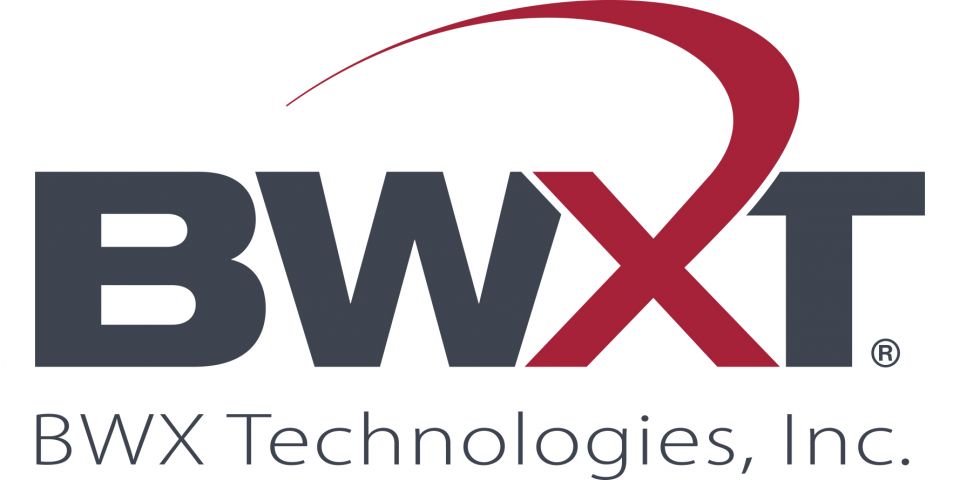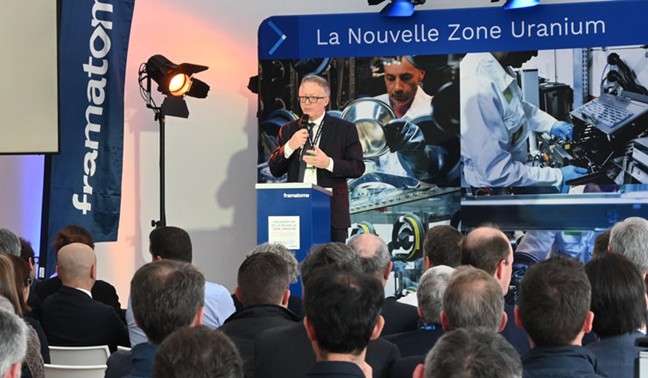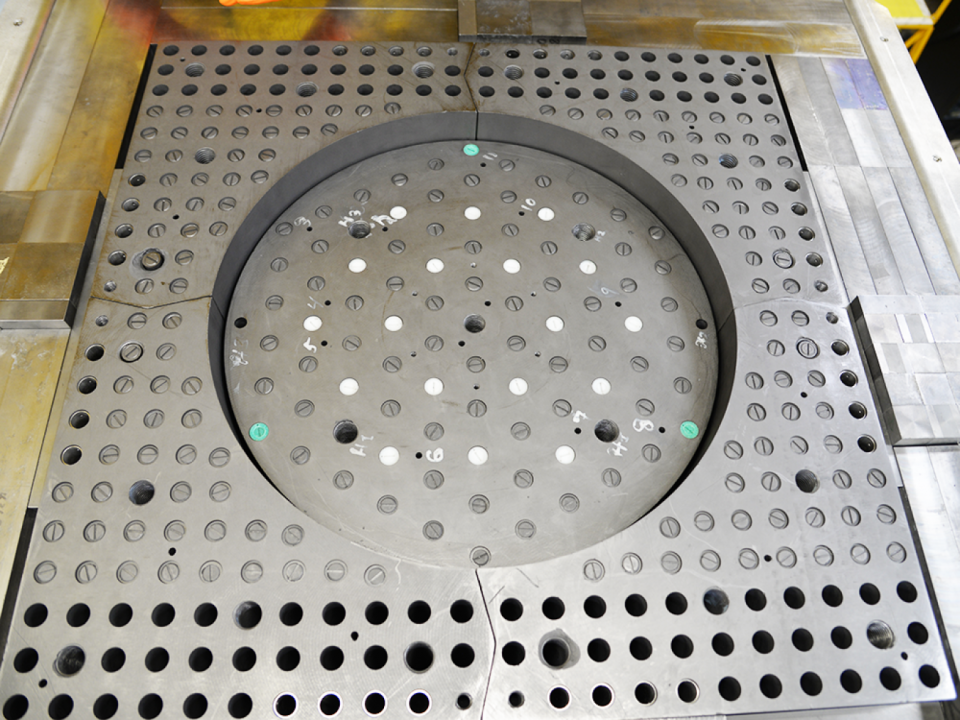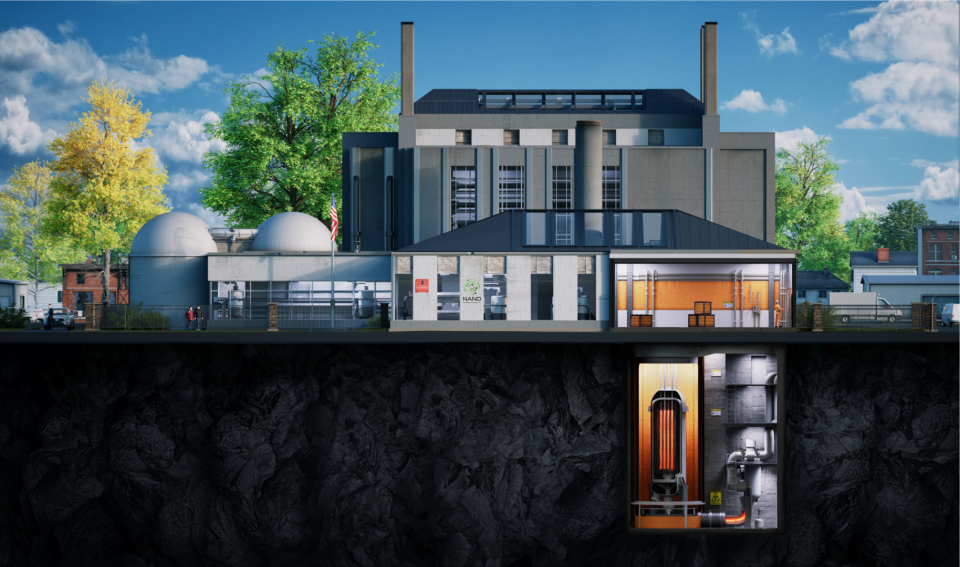TerraPower plans to invest in South African HALEU laser enrichment technology
TerraPower announced today that it has signed a term sheet with ASP Isotopes Inc. as the first step of a planned investment in the construction of a high-assay low-enriched uranium (HALEU) enrichment facility and the eventual purchase of HALEU produced at the facility to fuel its Natrium fast reactors.
What TerraPower is after: Nonnuclear construction activities began this summer at the Wyoming site where TerraPower is building its first 345-MWe sodium-cooled fast reactor Natrium plant with support from a public-private partnership with the Department of Energy's Advanced Reactor Demonstration Program. Natrium needs metallic HALEU fuel, and despite action by the DOE to set up a HALEU Availability Program for enrichment and deconversion, it’s not yet clear when TerraPower will obtain enough HALEU to fuel the reactor.
“TerraPower has been working diligently to ensure a stable, secure HALEU supply chain for our Natrium reactors. This agreement is another example of our commitment and investments to commercialize HALEU production domestically and in allied countries,” said Chris Levesque, TerraPower president and chief executive officer. “We are optimistic about ASP Isotopes' enrichment capabilities and planned timeline to help ensure advanced nuclear energy can achieve its necessary role in meeting climate energy targets.”
ASP Isotopes said in a November 2023 press release that it was “in active discussions with various regulatory bodies and governments to determine the location for its first HALEU production facility. Their aim is to supply commercial quantities of HALEU for SMRs by 2027.”
TerraPower notes that it has made agreements with fuel cycle companies in the United States and that it “remains an active member and participant of DOE’s HALEU Consortium.”
TerraPower has signed memoranda of understanding and agreements with Centrus, Framatome, and Uranium Energy Corporation. Regardless of how it sources uranium feedstock, TerraPower expects to fabricate its fuel at a Natrium fuel facility on a Global Nuclear Fuel–Americas site in Wilmington, N.C.
What ASP Isotopes can offer: ASP Isotopes identifies as a “development stage advanced materials company” focused on developing proprietary isotope enrichment processes—an “aerodynamic separation process” (ASP) for lighter isotope production and a “quantum enrichment” technology more suitable for enriching heavy isotopes of uranium.
ASP Isotopes is in the process of constructing three isotope enrichment facilities in Pretoria, South Africa, that will enrich carbon-14 for health care and agrochemicals, silicon-28 for semiconductors, and ytterbium-176 for cancer treatment. The company plans to enrich uranium for the nuclear energy sector using the laser-based “quantum enrichment technology” the company is developing.
According to an October 30 presentation by ASP Isotopes, their laser enrichment technology differs from the AVLIS technology developed in the United States and transferred to USEC, which later terminated a development program, and the SILEX technology developed in Australia and now being developed Global Laser Enrichment, which is jointly owned by Silex Corp. and Cameco Corp.
To date, no laser enrichment technology has been used to produce enriched uranium for a commercial market; plants operating around the world today use gaseous centrifuge technologies.
Terms of the agreement: According to an October 30 news release from ASP Isotopes, the term sheet “contemplates the preparation of definitive agreements pursuant to which TerraPower would provide funding for the construction of a HALEU production facility.” TerraPower and ASP Isotopes anticipate a “long-term supply agreement for the HALEU expected to be produced at this facility, pursuant to which the customer would purchase all the HALEU produced at the facility over a 10-year period after the expected completion of the facility.”
If the agreement is carried out as planned, TerraPower would purchase the HALEU from a U.S.-based ASP Isotopes subsidiary, Quantum Leap Energy, and would enjoy a “period of exclusivity” during which ASP Isotopes and Quantum Leap Energy would not negotiate with third parties for the supply of HALEU or work on another ASP technology-based uranium enrichment facility.
ASP Isotopes has previously announced agreements with unnamed U.S. small modular reactor developers.
Taking questions after his October 30 presentation, Paul Mann, chair and chief executive officer of ASP Isotopes and Quantum Leap Energy, was asked about those earlier agreements with multiple U.S. SMR developers. Mann said that “TerraPower [has] offered to put a considerable amount of capital into this project, and in return for that, we have said we will not sign an identical agreement with another SMR company between now and a certain date in the future, so we are giving them time to put capital into the project.”






